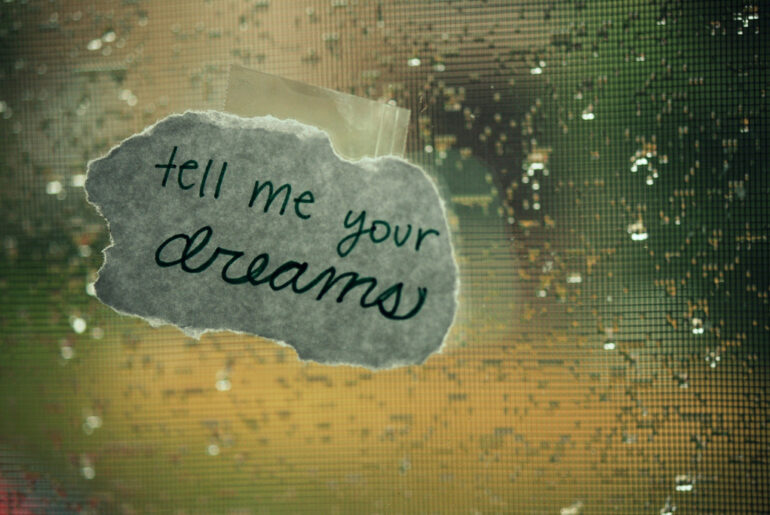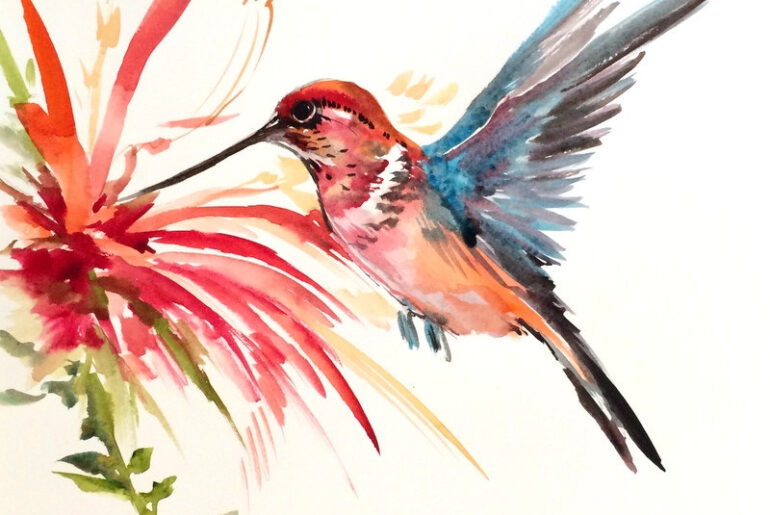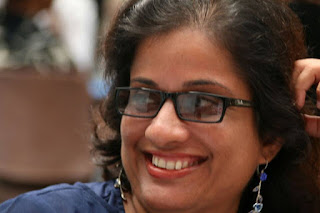Photo Courtesy: https://c1.staticflickr.com
Tell me your dreams,
Tell me what makes you tick.
Tell me what makes you stay awake late at night,
Tell me what takes you to cloud nine and what makes the stars shine a bit brighter.
Tell me your dreams…I will show you people who’ve mastered the art of dreaming
Perhaps the best thing about my career is meeting new people. But then this is quite ironic for an introvert because meeting people is such a struggle for me. I have to contemplate the whole thing a million times before I finally make up my mind to meet the person i’m to meet. Yet when I think of it, coming out of my shell and my comfort zone has rarely ever made me regret. All I ever had to do was filter their objectives, my objectives, their agenda, my agenda and for those I did eventually meet, I learnt a lot. My perspective has really changed a great deal from listening to people, to their stories, to their dreams…oh, their dreams, you see the spark in their eyes as they tell you their goals and it is just amazing. I met such a lady yesterday and not even my words, can explain the enthusiasm in her voice as she narrates her dreams.
Amina Yusuf is the typical Nairobi Muslim lady; learned, focused, super-ambitious, determined and brave. While she was leading a comfortable life in Nairobi with her three children and husband, in her own home, with a good career, she decided to leave it all to come to Mombasa. The main aim of the migration was to get her children into tahfidhul qur’an and give her children an ideal childhood in Islamic neighbourhood. Upon arriving here, she joined madrasa for one year and up’d her education. It was while she was in madrasa that she noticed how the girl child in the neighbourhood were being left behind; uneducated, child labour, poverty issues, family issues, neglected orphans…and she decided she must make a move.
Without over-thinking, she decided to start an education centre by the name Al Reyhan girls education centre with the little amount she had. She went for shopping and started buying the basic necessities she would need for herself and the girls. She had a special target on which girls she needed to join her centre so she would personally move from one house to another, interacting with family members, befriending them without anyone knowing her intention. It was only after weighing each family’s situation is when she’d recruit the girls; orphaned girls, neglected girls, girls from very needy families who can’t afford to take their children to school, girls who live with their old grandparents with no one to take care of their education needs…until the number of girls got to 97, 52 of which are boarders.

The school system is such that, the entire morning the girls are taught tahfidh and basic Islamic knowledge then in the afternoon, they have the secular subjects. Amina wasn’t going to let her girls feel any less than fellow girls in academies. She would fish for money in her own ways and buy them books, stationary, colours, pads for the older girls, she’d cover the books herself, ensure they eat good food with a fruit at least each day and meat once a week. She’d take them to outings occasionally, give them pep talks, go play with them at the beach early mornings, interact with them and at these times, she says, is when you get to know of the deepest secrets of the children.

“I want to mould and shape these girls into ambitious educated women. I want it that some day, the girls at my centre can have quality education such that there is no difference between them and the students at Light Academy. I even told my thirteen year old daughter about my dream and my goal; that if I die like right now, I want her to continue with my legacy because this is the legacy I want to leave behind,” Amina says.
“It’s been tough for us here. I run this place entirely by myself and by God’s grace. Sometimes I push family and friends to chip in but otherwise we have no other way of income. I have rented these two buildings; each having three rooms. I stay in one of the rooms with my three children too. We currently just have three beds, the rest we just lay mattresses in this one room and the girls sleep here. It gets too hot and stuffy sometimes, but what can we do…we need to survive here until we get a bigger place.”
One room being her own and for her three children, the other two being classrooms in one house. The other house which also has three rooms; one belongs to the caretaker and teachers who help around, the other room contains the three beds while the last room is the classroom during morning hours and the place to sleep in the night. I can’t even come to think of how these 52 girls fit into the two tiny rooms.

“We’ve had pretty bad days too. We once had a tv, we had to sell it at some point. There was a time we were all locked inside the house because we had really delayed with rent. The agents wouldn’t let us out. I had to frantically start calling friends and family for help, but alhamdulilah some good group of friends managed to raise the amount in good time and saved us. And sometimes, we have good Samaritans coming by to greet us or bring us some things; sometimes it is university student groups, sometimes just individuals or charity groups. We really appreciate it but then sometimes we have nowhere to store the things. Like someone may bring two cartons of milk and we have no freezer to store. Sometimes I go to neighbours and leave a few in different homes but then it gets to a point I feel burdened to ask that from them anymore. I can’t keep doing that forever. Sometimes people don’t say they are fed up but you can feel it yourself that you can’t ask for favours everyday. So I end up sharing it to the day scholars too so that the milk doesn’t spoil. Or sometimes someone brings a goat, we slaughter and have a feast for lunch and dinner, but since I fear that what remains may get bad, I choose the most needy of families and give them it.”
With all this, Amina still strives to make her centre better and greater.
“As much as I use 8-4-4 system to teach the girls, I decided to give them extra life skills that would help them when they grow up. We have cooking classes at least once a month, tailoring classes, sometimes we make juice, sometimes I come with my small laptop and show them how to use. We have very limited resources but with such a fast developing world, I wouldn’t want them to remain unaware of what is happening around them. I teach them how to be as ladies; the etiquette and manners. I discourage them from going outside past maghrib times (sunset) and sometimes parents come to complain why i’m making the girls be disobedient by refusing to go outside past sunset but I tell them about matters of time and how we need to protect them. I also teach them about women in Islam; the history and of modern world (like Yasmin Mogahed) because if European girls are empowered why not do that for ourselves too? So I give them history lessons of how Muslim women impacted the society. We even have our library we call it ‘maktabatul Aisha’ (Aisha’s library) since she is one of the most educated women in history. We call our sports section ‘Nusaiba’ since she was a brave warrior during the prophet’s time. We call our accounts section ‘khazinatu Khadija’ for she was a successful business woman. And the point of all this is for them to realize the power and importance of a woman in the society. They too can become these women.”
In both two buildings, only three rooms are used for studies. One is the class for toddlers and KG 1. The other room is for KG 2, 3 and class 1. The third room has class 2 to class 6. Every teacher hurdled in a corner with her numbered girls. It is hectic no doubt. Imagine having three teachers teaching different classes, all in the same room. And here, it is like ‘whatever will be will be’. They teach regardless of the limited space to comfortably talk to the girls or for them to bend down to take some notes.

“It’s been 9 months now and I thank God that we have survived until now. Sometimes I sit with these girls and just talk to them. I ask them what they want to become when they grow up and you’d hear one say, ‘I want to get married’. When you ask her ‘why so?’ She says, ‘My family already planned for me to get married to my cousin.’ And this is just a thirteen year old girl. She has no focus, no goals whatsoever because she, the girl child, wasn’t given the knowledge to understand what she is capable of. We have very young children nowadays, as young as 3 who will tell you that they want to be a doctor or a pilot or a teacher. Why then would some girls have such goals in life at such tender ages while other lack any goal at all?”
As we move around and Amina shows me the students of each class, I notice a big girl at KG 3. Immediately Amina says this is class one, I see her quickly sink down and bow her head not to be seen. She is ashamed, I notice.
“What’s her story?”
“Long story. She lives with her step-mum who’s been mistreating her. Sometimes she comes here and slaps her for maybe some minor she hasn’t done or something like that. She’s been neglected, with no education…and she’s been working as a house girl. I didn’t even know that that was her step-mum until lately. Currently, i’m trying to transfer her into our boarding here, so she can study well with a peace of mind. She is just 13 but talk to her and she sounds like 35. She speaks like an adult…”
“That’s what tough life does to you…”
“And there are more of these girls. They need help. They need somewhere safe to go to. There is this young girl here, she’s just four years old but she’s seen a lot. Her mother is a divorcee and a drug addict, she uses bogizi. The young girl has both asthma and sinus. She keeps getting the attacks regularly but the mother is never around or very high…so she stays here with me at boarding. All I want is for her and others like her to have a good life…But I can’t take any more here. I don’t have space for more. We need a bigger place and reach out to more girls.”

Most of the girls come from families with very huge baggage. 60% of the girls are orphans, 30% are needy, 10% are abled. The 10% are the only ones who pay fees which is 1700/= per month. But it is more than worth it because Amina feeds them and provide stationary for them too. We even have break time tea twice a week and porridge three times. Because the aim here isn’t business, it’s to give the students a chance like other children have. So from what the abled students pay is what helps in paying teachers and catering for other needs. By ‘abled’ we don’t mean ABLED. We just mean students who are a bit better than the rest.
I look at Amina and say to myself, ‘This human being right her; she is making a difference.’ I look at her eyes sparkle as she talks of how much she wants to do for the girls, of the sighs between her sentences like she is desperate to reach her goal, of the endless ‘Thank God’…I look at her and marvel. We have made idols and role models from people on social media who do nothing other than make noise, have aimless posts, put up many photos of themselves then call them ‘influential people’. But how did they really influence us? In what did they influence us? Was it ever something meaningful? I doubt. Then there are people like Amina, who’ve sacrificed their good peaceful lives where they could live happily without a worry just to make a difference and bring change in other people’s lives. These are the unsung heroes. The very few who do something great not so as to look great but to create some other great thing. And here now I call for your help to help Amina achieve her dream…
On the 2nd of April, Amina is organizing for a fundraiser food bazaar. She is calling for people to assist her in any way possible. You may donate some food that will be sold, or you may sell your own food on that day then share the profit, or you may just volunteer to help around making the event successful or even come sell any of your other businesses and agree on how to share the profit. The aim of the fundraising is to get money to buy a freezer which is quite necessary for them right now. But there are so many other needs for them.
The girls at boarding sometimes are to go home and they refuse with the say, “Ustadha, at home I can’t have pads. I will just be told to use a piece of clothe.”
So yes, these girls come from very desperate situations you don’t want to imagine. They also need a bigger space/home of their own to move to because that is what will ease a huge burden of rent and congestion. Donate with whatever you can. Volunteer. Or even share this post as widely as possible. Let us make her dream come true. Let us make a difference in these children’s’ lives. The event is also going to a fun day at the same time i.e. a food bazaar plus fun day for children. Entrance is free. Kindly avail yourselves and make this work in shaa Allah.
If you want to assist in any way and would like to talk to Amina, here’s her contact:0797641346/0733341574. God bless you!!

Special thanks to my best friend, Husna, for supporting me in all my projects. God bless your soul always 🙂
Tell me your dreams, I will show you people who have mastered the art of dreaming



